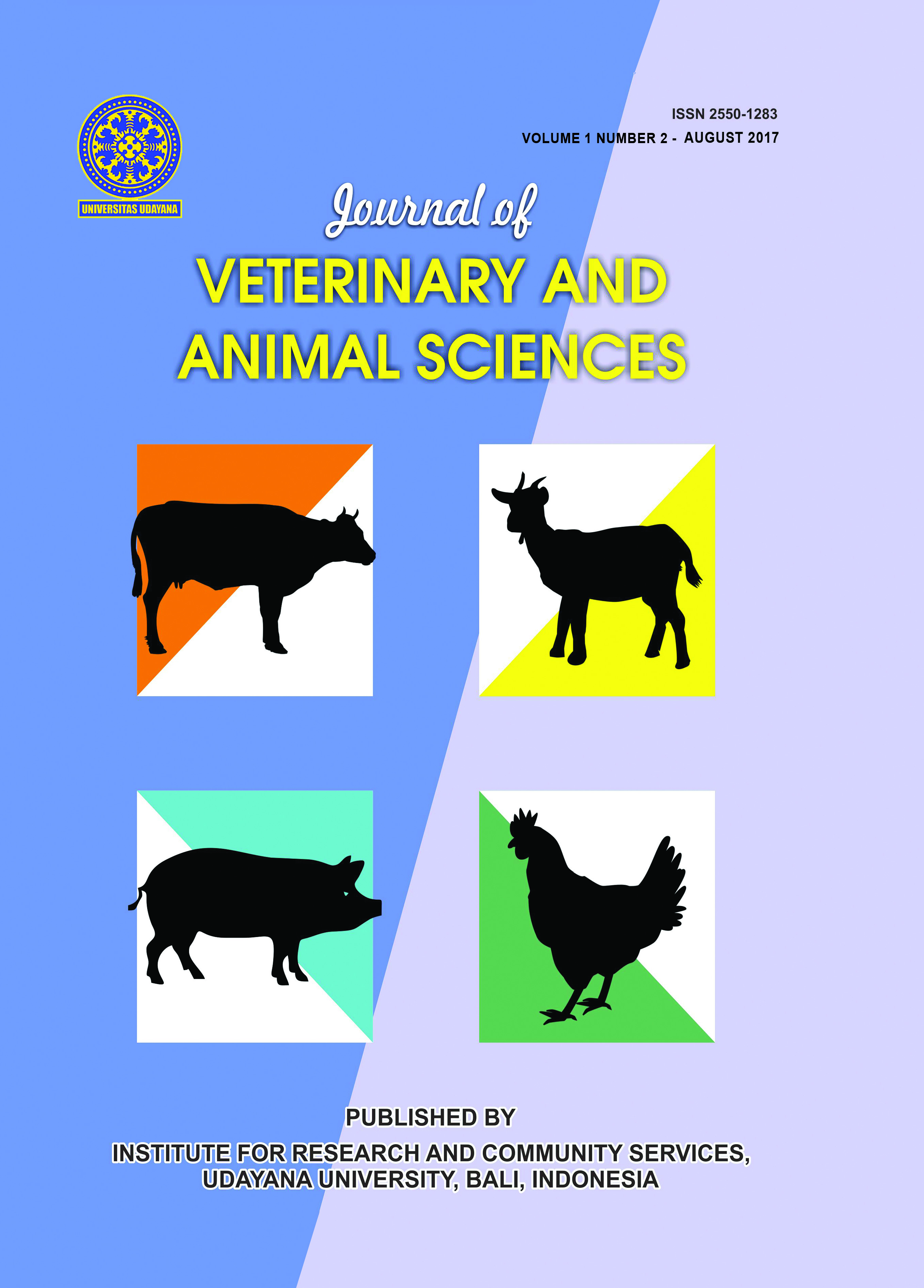Extract Ashitaba (Angelica Keiskei) Improving The Immune Response Il-2, Ifn-?balb/CMiceVaccinated With Rabies Vaccine
Abstract
Ashitaba plant (Angelica keiskei) is native to Japan that has been developed in Indonesia, has many benefits, as a vegetable and as immonomudulator. This study aims to determine the ethanol extract effect of Ashitaba leaves (Angelica keiskei) to increase immune response IL-2, IFN-? Balb/C mice were vaccinated with rabies vaccine. This study used a completely simple randomized design. Treatment consisted of six points are without Ashitaba (control), giving a dose of 100 Ashitaba; 200; 300; 400, and 500 mg/kg orally for 21 days. Each treatment was repeated four times, so there are 24 units for researching. On the 28th day, do the vaccination with rabies vaccine to all groups of mice. On 42th day, the spleen was taken for viewing cultured lymphocytes producing cells. Variables observed are the levels of IL-2 and IFN levels of the lymphocyte. The results showed that the extract of Ashitaba can increase levels of IL-2 were significantly (p<0.05). Respectively, the average levels of interleukin-2 after treatment Ashitaba extract dose 0; 100; 200; 300; 400, and 500 mg/kg, are 1,700 pg, 3.919 pg, 5.218 pg, 8.875 pg, 15.563 pg. Gammainterferon also increased as increase as given by dose of Ashitaba extract. Statistically, it showed significant difference (p<0.05), except between 400 and 500 doses was not significant (p>0.05). The average control levels of interferon gamma are 13.534 pg, 100 mg/kgbb dose (15.222 pg), dose 200mg/kgbb (15.745 pg), dose 300mg/kgbb (16.749 pg), dose 400mg/kgbb (17.116 pg) and dose 500mg/kgbb (17.278 pg). The conclusion, Ashitaba ethanol extract can improve the immune response of IL-2 and IFN-? mice vaccinated with rabies vaccine.











